MINA ANWAR has left a lasting mark on British popular culture with outstanding performances across film, theatre, and TV.
The acclaimed actress is part of a generation that broke new ground for British Asians, with a remarkable body of work that includes a trailblazing role in the hit sitcom The Thin Blue Line and major theatrical productions.
She has also made an impact as a writer, notably adapting Willy Russell’s iconic Liverpool-centred play Shirley Valentine to a Lancashire setting and taking on the title role. After a sell-out run in 2020, the production recently began another tour at the Octagon Theatre in Bolton, where it is being staged until March 8. She delivers a compelling performance in the one-woman play about a disillusioned housewife and mother, who reflects on her life and then goes on a solo adventure abroad. It adds to an impressive body of work from an actress who has inspired others to follow in her footsteps.
Eastern Eye caught up with Anwar to discuss her journey, Shirley Valentine, inspirations, theatre, and the secrets behind delivering a great performance.
How do you reflect on your acting journey?
I graduated from drama school in 1991, so it’s been 34 years. How do I reflect on it? I’m still here, enjoying it, and seeking challenges. It’s difficult when you’ve played many characters and want to keep finding roles that stimulate and interest you. I’ve always been drawn to extraordinary things happening to ordinary people – it’s like activism in art, portraying real human experiences.
You have played a wide array of roles. Is there one character that’s closest to your heart?
Playing Maggie Habib in The Thin Blue Line was really special. It was my first major role on television and a huge leap, as it was a lead part in a live studio sitcom alongside Ben Elton and Rowan Atkinson – people I grew up watching and who inspired my love for comedy. Maggie was an incredible character. I initially auditioned for the role without knowing much about it, and I was absolutely over the moon when I got the part.
It was groundbreaking at the time.
I was the first Asian woman in a mainstream British sitcom, which was a huge milestone. But at the time, I didn’t really think about it in those terms – I was just focused on the work. I never measured my progress by being the ‘first’ of anything. I was simply thrilled to be in a room with such extraordinary writers, actors, and creatives.
You have done some of your best work on stage. How important has theatre been in your journey?
You don’t really ‘stay’ anywhere – you follow the work. I’ve always chosen roles that interest me, regardless of the medium. I met someone recently who said, ‘I’m only doing TV now, not theatre,’ but the truth is, this industry doesn’t work like that. You follow the art and the good work. I’ve always chosen roles that I’m proud of and that have integrity, especially as an Asian, working-class northern woman.

Your adaptation of Shirley Valentine fits that bill.
I’m incredibly proud of playing Shirley Valentine and resetting it in Lancashire, as it’s a story that hasn’t traditionally belonged to Asian women. I’m as Asian – Indian, Pakistani – as I am northern. I was born in the North West, and that identity means a lot to me. I believe every narrative should be open to everyone, as long as there’s a passion for telling those human stories.
Is Shirley Valentine your most challenging role?
Well, it’s just me and 15,000 words! I first performed it just three weeks before the world went into lockdown in 2020. I rewrote certain sections with Willy Russell’s (original writer) permission and mentorship to reset it in Accrington, where I’m from. It hadpreviously only ever been set in Liverpool. A lot of people don’t realise that it’s just one woman playing all the characters, because in film, they had a lot of other people. It’s a challenge, but I’m grateful to still be able to do this kind of work. Looking at the script on the page, you think, ‘Wow, that’s extraordinary.’
How do you remember 15,000 words of the play?
I’ve always been quite methodical in how I approach text. But this is storytelling beyond storytelling – it’s story after story, about a woman looking at her life and realising she may have done nothing with it. And then, suddenly, she decides she wants more, a bigger life than she’s ever had.
Tell us more about Shirley Valentine.
She’s an ordinary, workingclass woman who married young, had kids, and then, at 42, suddenly realises she never had the courage to do something for herself. So she takes a leap – she goes to Greece to live well and have an adventure. Throughout the play, she reflects on everything that held her back – her self-perception, her family, her husband. It’s an absolutely stunning piece of writing. I think it’s one of Willy Russell’s finest works. When I first started, I had the privilege of reading my version to him in his office, and I got his blessing.
That must have given you confidence.
Absolutely. He also told me he didn’t understand why I hadn’t started writing earlier in my career. That gave me real confidence in my writing, and I’ve done more of it since.
The new production of Shirley Valentine is on a slightly bigger scale. Tell us about that.
It’s a slightly larger stage, but it still has an audience seated on three sides, and the kitchen setup remains the same. I still cook live egg and chips every night! Willy Russell’s team asked if I’d like to bring it to the main stage and then take it on a small Lancashire tour. So after the Octagon in Bolton, I’ll be at The Dukes in Lancaster, and then at one of my favourite theatres, the Blackpool Grand.
Do you get nervous before going on stage?
(Laughs) Oh, yeah! Even after 34 years, I still do. I’ve actually been on stage longer than that – since I was 16, singing in working men’s clubs.

How do you feel in front of a live audience?
When I’m performing, I get completely lost in the moment. Suddenly, it’s the end of act one, and I realise the only places I’ve been are that kitchen or the beach in Greece. Then I hear the audience’s reaction. When we first staged this, it was a sell-out run – I earned that. It’s selling really well now too. Theatre is an exchange – you share something with the audience, and they share something back.
Is great theatre something that stays with audiences even after they leave?
Yes, definitely. Whether it’s musical theatre like Everybody’s Talking About Jamie, a powerful regional production, or something as visually stunning as Life of Pi in the West End, the most important thing is that the audience is moved – whether they laugh, cry, or feel something deeply. That’s my job. Right now, I’m doing seven shows a week, and I just finished doing 12 shows a week in panto in Derby. There’s nothing like performing in front of a great theatre audience.
What is the secret to a great performance?
It’s about being prepared while also taking care of yourself. The older you get, the more you need to keep your mind, body, and soul intact. You also need to honour the text and be fully present. Hiran Abeysekera, who starred in Life of Pi, once told me that Peter Brook told him, “Just be where you are when performing.” That’s really profound – you don’t need to force anything. You just let the play come through you.
What inspires you?
People inspire me – people like you, Asjad. I love reading your articles. The giants who came before us, the films I grew up watching like Pakeezah and Apocalypse Now – all of it. But mostly, everyday people. A conversation in a shop, someone overcoming a challenge – that’s what truly inspires me. It’s a challenging world right now, so creating theatre or art feels like a true privilege. Being part of the diverse communities we belong to inspires me to keep doing this, to serve, and to be fully present.
Finally, why do you love being an actor?
I love the creativity. I love working with an extraordinary team, all striving towards the same goal. There’s nothing there, and then suddenly, something exists. Art is magic.
Shirley Valentine is on at the Octagon Theatre in Bolton until March 8, The Dukes in Lancaster from March 12-22, and The Grand Theatre in Blackpool from April 1-5
















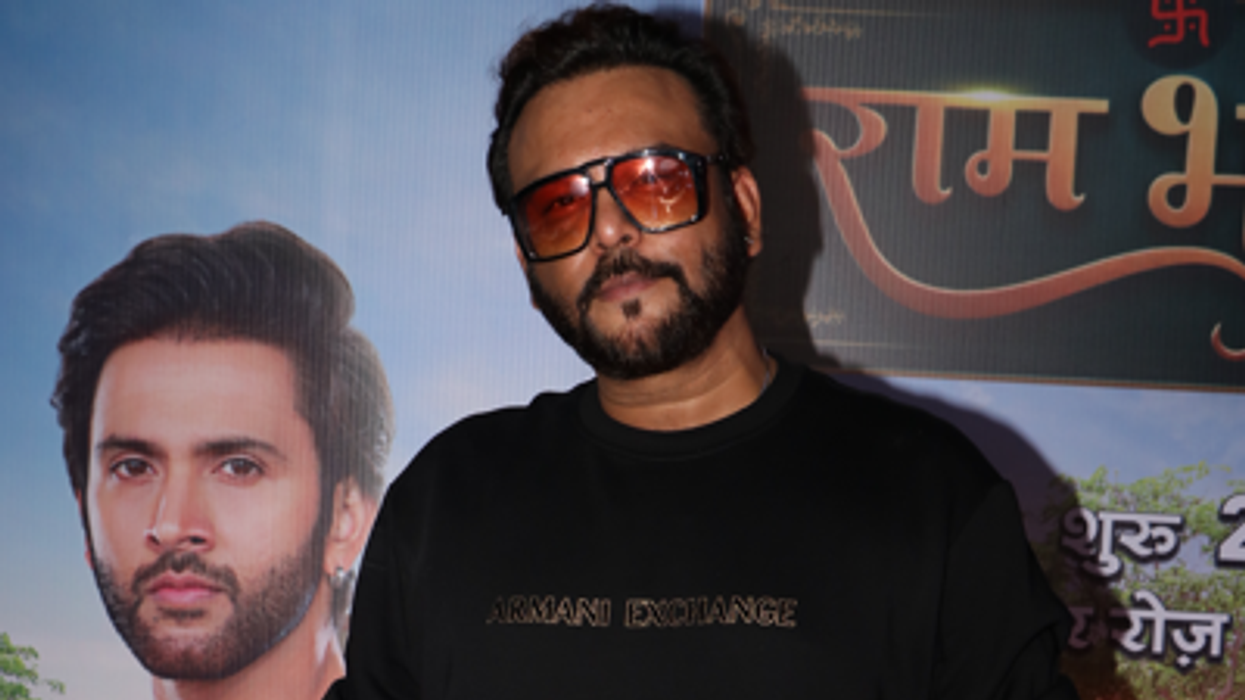
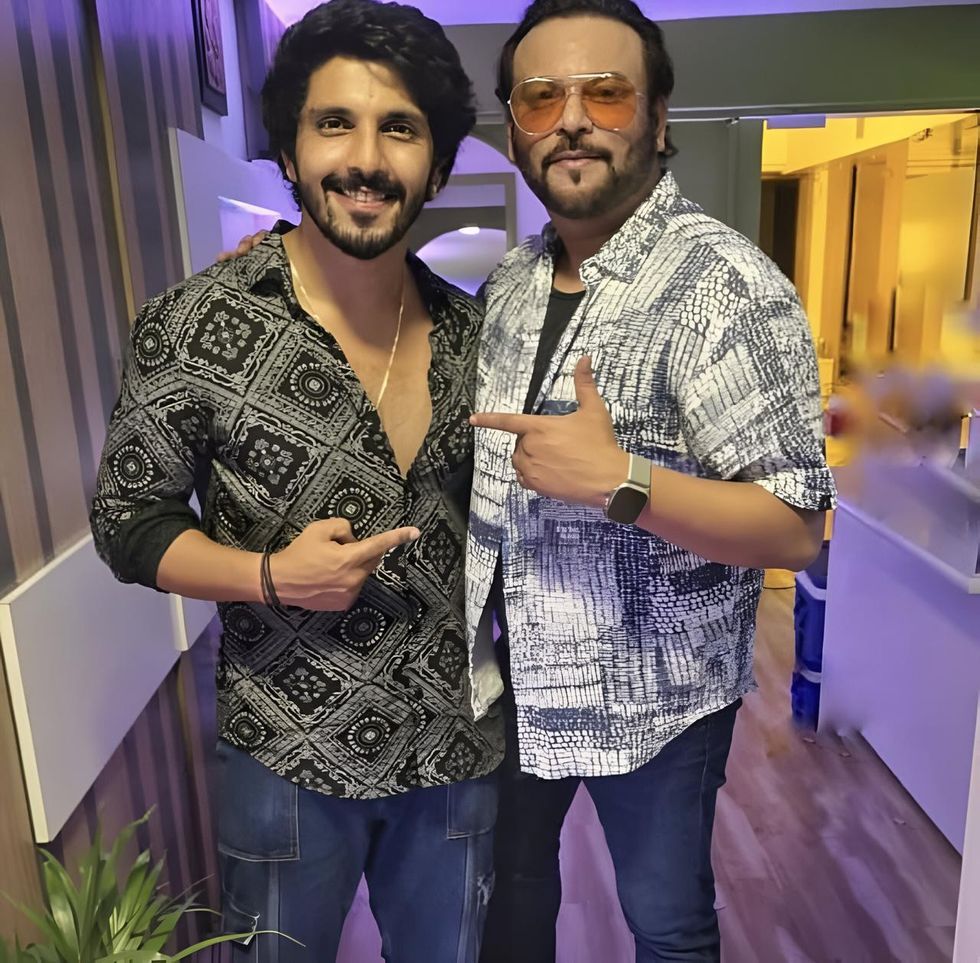 With actor Kanwar Dhillon in 'Ram Bhavan'Instagram/ rahultewary
With actor Kanwar Dhillon in 'Ram Bhavan'Instagram/ rahultewary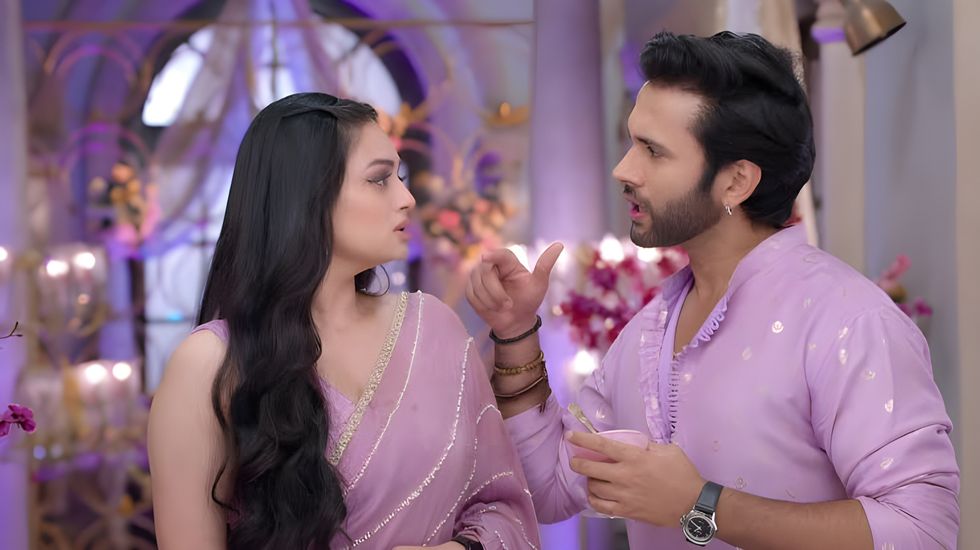 Udne Ki AashaScreen Grab 'Udne Ki Aasha'
Udne Ki AashaScreen Grab 'Udne Ki Aasha'
 Mrunal Thakur in Sita Ramam
Mrunal Thakur in Sita Ramam  Director Anjali Menon
Director Anjali Menon Actress Nayanthara
Actress Nayanthara
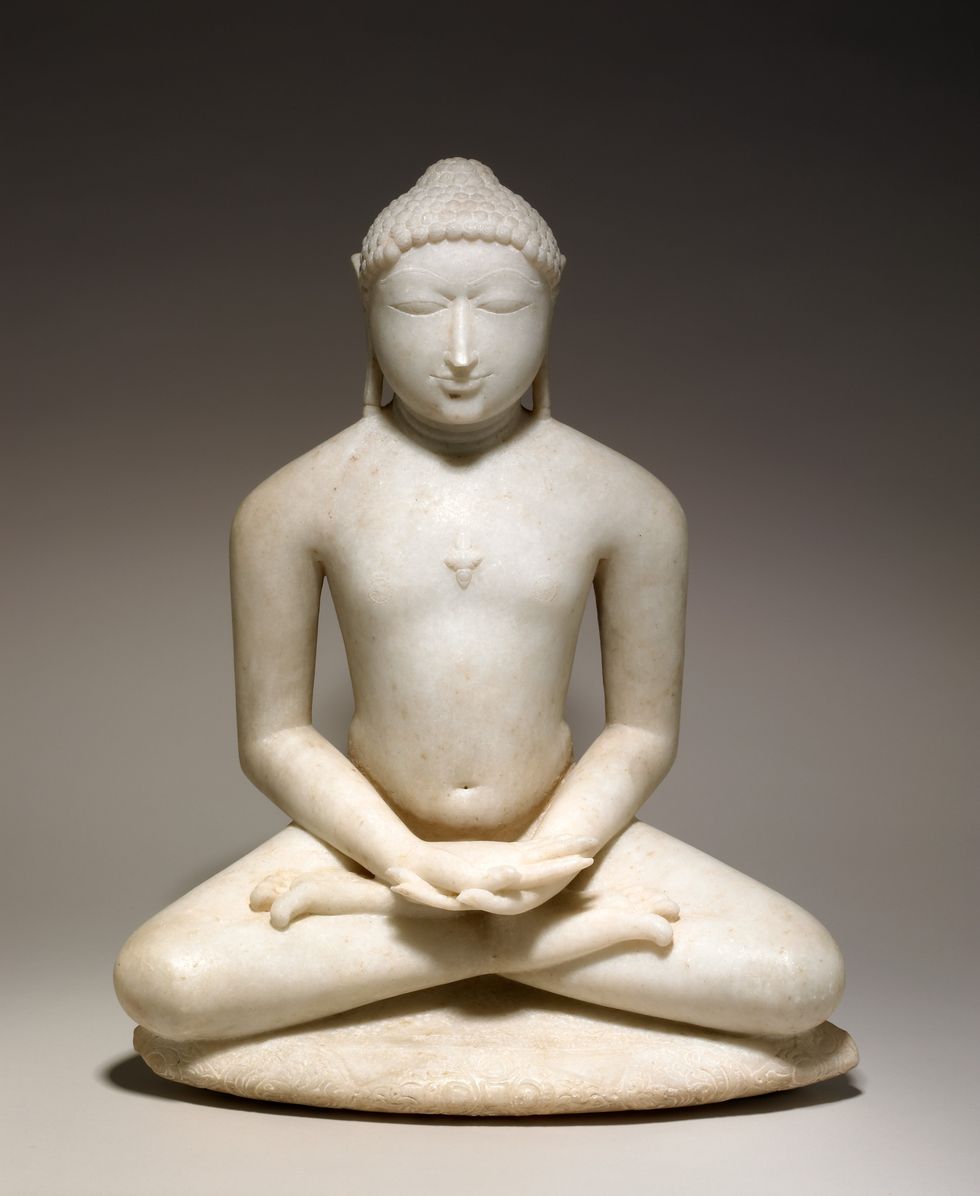 Seated Jain enlightened teacher meditating, about 1150-1200The Trustees of the British Museum
Seated Jain enlightened teacher meditating, about 1150-1200The Trustees of the British Museum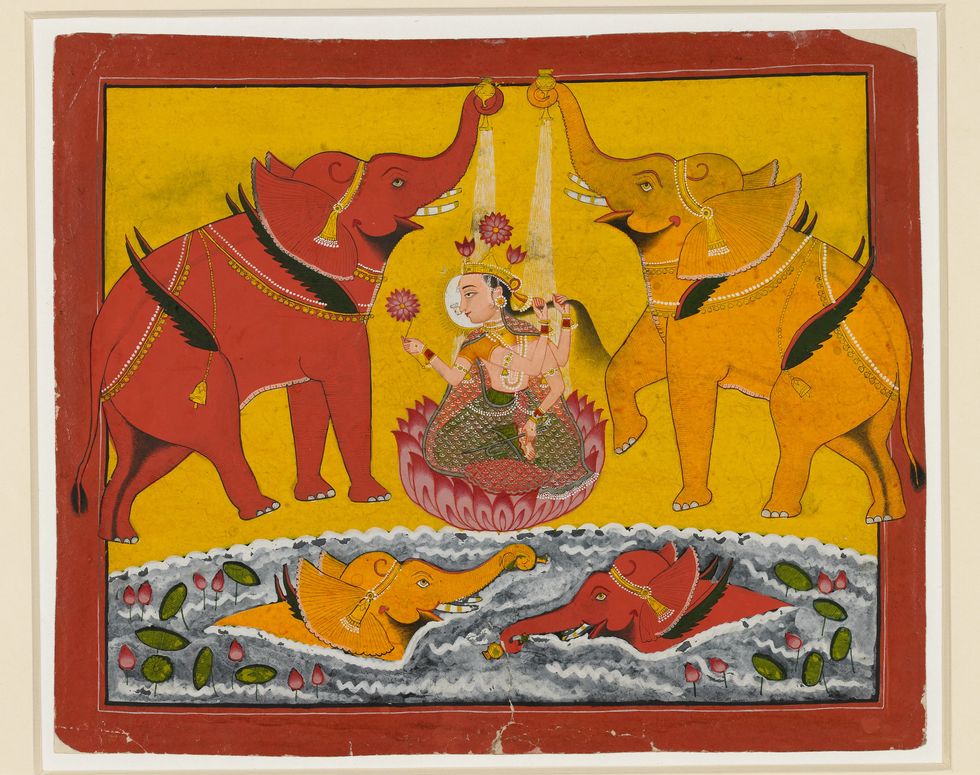 Gaja-Lakshmi ('Elephant Lakshmi') goddess of good fortune, about 1780 The Trustees of the British Museum
Gaja-Lakshmi ('Elephant Lakshmi') goddess of good fortune, about 1780 The Trustees of the British Museum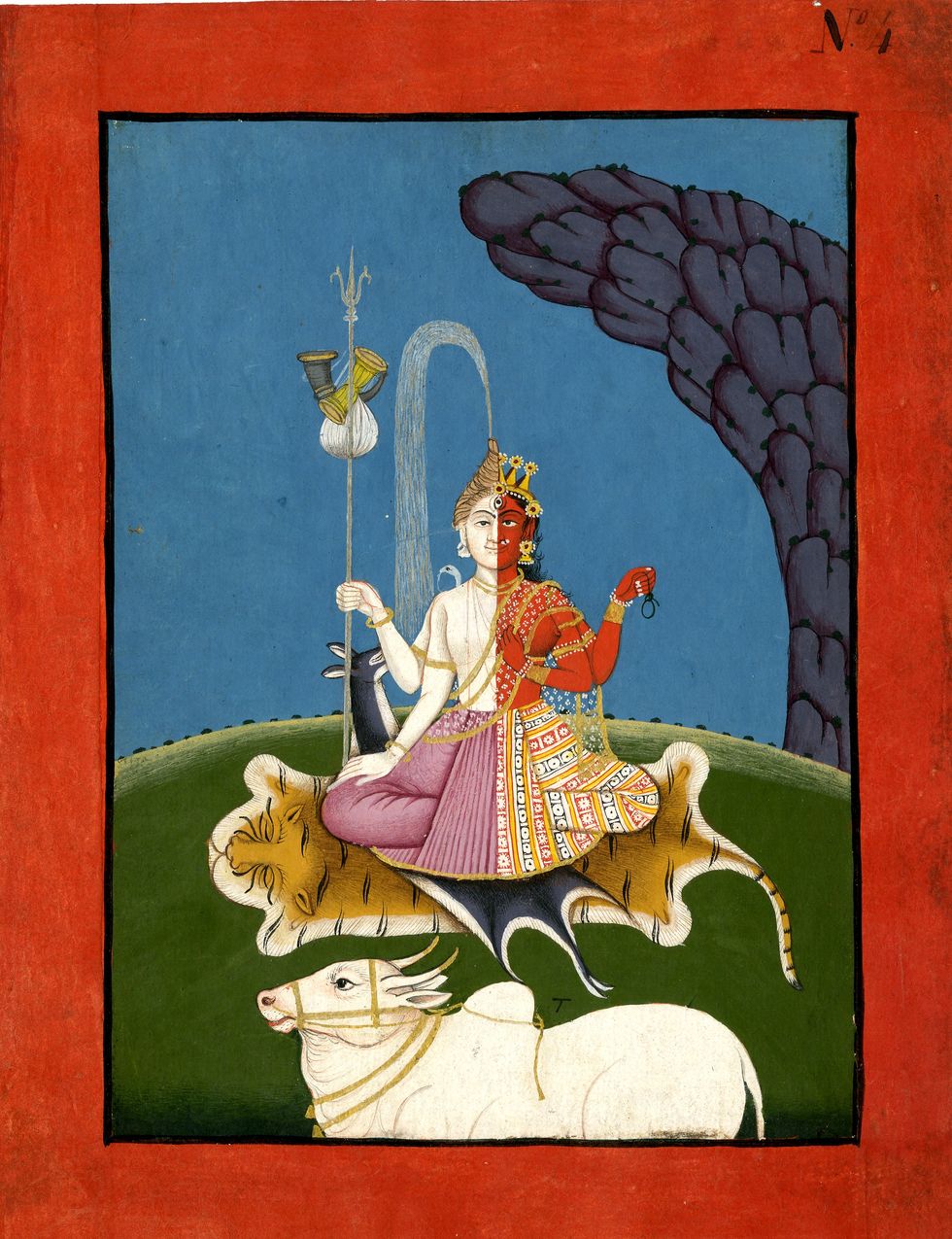 Ardhanarishvara, lord who is half woman, Shiva and Parvati combined in one deityThe Trustees of the British Museum
Ardhanarishvara, lord who is half woman, Shiva and Parvati combined in one deityThe Trustees of the British Museum
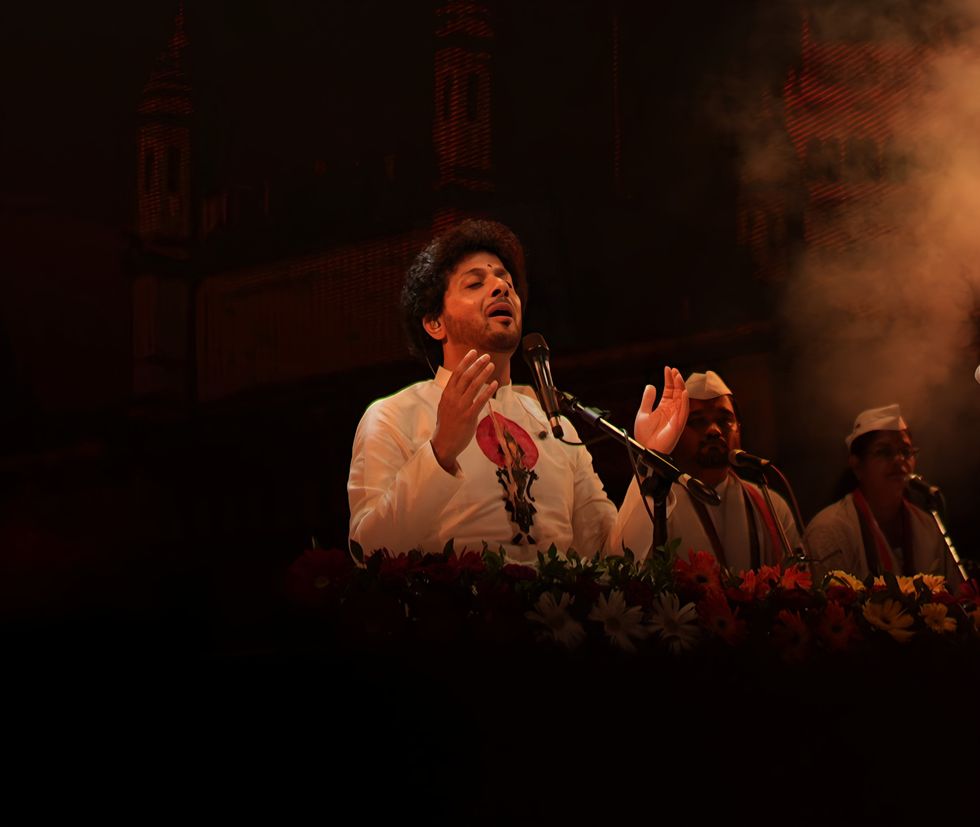 Mahesh Kale at his concert 'Abhangwari'Instagram/ maheshmkale
Mahesh Kale at his concert 'Abhangwari'Instagram/ maheshmkale